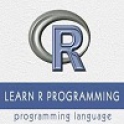Users Online
· Guests Online: 8
· Members Online: 0
· Total Members: 185
· Newest Member: meenachowdary055
· Members Online: 0
· Total Members: 185
· Newest Member: meenachowdary055
Forum Threads
Newest Threads
No Threads created
Hottest Threads
No Threads created
Latest Articles
DEMO - R Programming - Learn R from Scratch
 DEMO - R Programming - Learn R from Scratch
DEMO - R Programming - Learn R from ScratchAnalytics Courses |
| Categories | Most Recent | Top Rated | Popular Courses |
| Uploader | Date Added | Views | Rating | |
| Superadmin | 01.01.70 | 499 | No Rating | |
| Description | ||||
| Learn the core fundamentals of the R language for programming. Fundamentals to Advanced R programming becomes more and more popular since it is fully open source and reacts very dynamic to new developments. Learn programming language R, from the very basics to complex modeling. This course covers regression, classification, clustering, reading data, programming basics, visualization, data munging, modern machine learning and more. This course is meant to give you an introductory understanding of the R language. Nowadays it is vital in many scientific or other analytical fields to have a good understanding of the R language. With this course you can build a very solid foundation to later on branch out to the various applications R has to offer. This course is designed for beginners that have no previous R programming experience. You will require a fundamental understanding of statistics to get the most out of this course. This course ensure quick learning in a simplified way. It explains the most important aspects of working on data and conduct analysis through example. You will start by learning how to install and navigate R studio. Learn Data/Object Types and Operations, Importing into R, and Loops and Conditions. you will be introduced to the use of R in Analytics, where you will learn a little about each object type in R and use that in Data Mining/Analytical Operations. learn the use of R in Statistics, using R to evaluate Descriptive Statistics, Probability Distributions, Hypothesis Testing, Linear Modeling, Generalized Linear Models, Non-Linear Regression, and Trees. Learn to create 2-dimensional Univariate and Multi-variate plots. You will also learn about formatting various parts of a plot, covering a range of topics like Plot Layout, Region, Points, Lines, Axes, Text, Color and so on. Once you have completed this computer based training course, you will be fully capable of using R for developing statistical software and data analysis tools. What are the requirements? Basic proficiency in statistics - probability distributions, linear modeling, etc A Computer with high speed internet Basic proficiency in math - vectors, matrices, algebra computer skills required to install R, R studio and run commands seeing it on video What am I going to get from this course? Over 39 lectures and 5 hours of content! Learn about the basic structure of R including packages Learn How To Get Started Programming In R learning of R through practice learn how to navigate in the RStudio interface learn how to perform basic commands in the R programming language Conduct Frequency Distribution Analysis / Univariate Analysis in R What is the target audience? Researchers who perform data analysis including graphs Web developers who want to implement data analysis features in their webpage Anyone interested in Data Mining, Statistics, Data Visualization Enterprise Data Analysts and Students Section 1: Introduction Lecture 1: Overview and History of R Section 2: Datatypes and Basic Operations Lecture 2:Introduction and Objectives Lecture 3:Evaluation Lecture 4:Explicit Coercion and Mixing Objects Lecture 5:Lists Lecture 6:Summery Lecture 7:Missing Values Lecture 8:Subsetting Partial Matching Lecture 9:Sebsetting Nested elements of a List Section 3: Reading and Writing Data Lecture 10:Reading Data Lecture 11:read.table Lecture 12:read.table for larger datasets Lecture 13:System Capacity Lecture 14: Dumping R Objects Section 4: Simulation Lecture 15:Introduction to Simulation Lecture 16:Linear Models and Random Numbers Section 5: Plotting in R Lecture 17:Introduction to Plotting Lecture 18:Useful Graphics Devices Lecture 19:What are GGPLOT2? Lecture 20:Adding a GEOM Lecture 21: GGPLOT2 in Details Lecture 22:Annotation Lecture 23: Plotting and Color Lecture 24:colorRampPalette Section 6: Scoping Rules Lecture 25:Scoping Rules Section 7: Looping Lecture 26:Loop Functions Lecture 27:apply in Looping Lecture 28:split in Looping Section 8: Classes and Methods Lecture 29:Classes and Methods Overview Lecture 30:Classes illustration Lecture 31:Generic/Method Mechanism Lecture 32:Calling Methods Section 9: Date and Time Lecture 33  ate and Time Overview in R ate and Time Overview in RLecture 34  perations in Date and Time perations in Date and TimeSection 10: Regular Expressions Lecture 35:Metacharacters Lecture 36:More Metacharacters Lecture 37:* and + Section 11: Debugging Lecture 38  ebugging Overview and Introduction ebugging Overview and IntroductionLecture 39:How do you Debug? | ||||
Ratings
Comments
No Comments have been Posted.
Post Comment
Please Login to Post a Comment.
